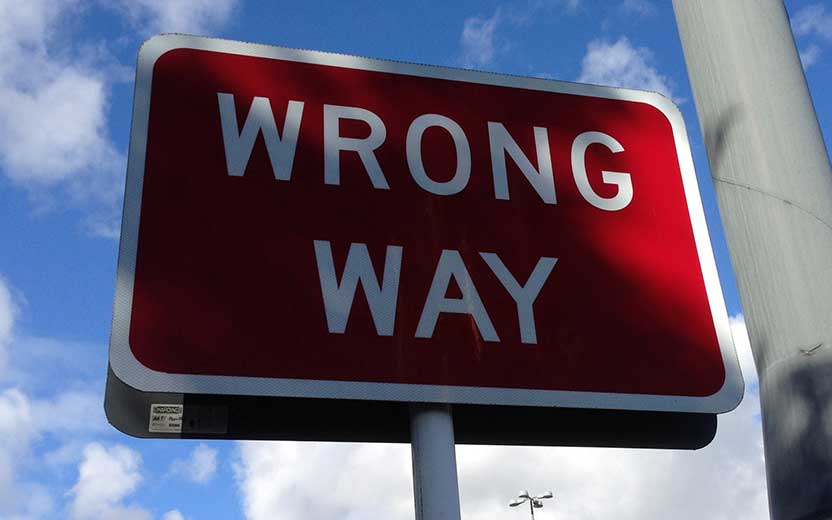By Marcus Fernandez
To many, nothing is better than spending a day on Florida’s beautiful waterways, or the Gulf of Mexico, on a clear summer day. With water activities at the center of many Floridian lifestyles, boating safety is something that all enthusiasts should understand. While not all boating accidents are preventable, individuals who take proper precautions while boating are more likely to avoid an incident.
In 2016 alone, the Florida Fish and Wildlife Conservation Commission (FFWCC) reported 741 boating accidents, an average of approximately two per day. The three highest incident months occurred in May (94), June (75) and July (96), and accounted for 63% of the total number of boating accidents that year. Even more disturbing is that 67 of these accidents, or nearly 1/10, resulted in a fatality. This represents a 20% increase in boating-related deaths despite only a 2% increase in the number of accidents.
Many hobbies come with risks, and boating is no exception. Understanding some basic safety measures can significantly reduce the chance of a boating accident.
Stay Alert
In 2016, the most common cause of boating accidents was due to inattention, accounting for 204 boat accidents in Florida.
Staying alert is perhaps the simplest and most important practices to adopt when practicing proper boating safety. It requires no additional training, aside from basic self-awareness. As boaters become more experienced, they will likely become more confident in their abilities. While more time on the water is helpful, over-confidence can sometimes lead to preventable accidents.
Put simply, pay attention. Keep a safe distance from other vessels and stay aware of any nearby activity, especially when docking or undocking.
Take a Boating Safety Training Course
Boating is something that varies in complexity. Sailing, for instance, is not nearly the same as operating a motorized model with a steering wheel. Steering wheel or not, the concept is far from simple. A lack of knowledge is the second most common cause of accidents. In 2016, inexperience accounted for 109 of total boating accidents.
Boaters can help educate themselves by taking some of the boating courses offered by the United States Coast Guard Auxiliary. Courses cover the following topics:
- Boating language or terminology
- Legal requirements
- Docking and undocking
- Waterway markings
- System checks
- First aid
The state of Florida does not have a “boating license,” but does require certain individuals to complete a boating safety course. Once completed, the FWC will issue a Boating Safety Education Identification Card. To see if you are exempt, please visit FWC page for more information.
If you or any of your passengers plan to fish in freshwater or saltwater, Florida law does require you to have a fishing license. To learn more about recreational hunting or fishing licenses and permits, please visit the FWC page to view requirements.
Behave Responsibly
When it comes to boating safety, the FFWCC lists speeding and reckless behavior as two separate groups. Speeding has a higher incident rate, totaling 63 boating accidents in 2016. Carelessness only accounted for 36.
Although the waterways are not filled with traffic in the same manner as Florida’s busy roads, excessive speed can be just as deadly. Exercise caution while boating and monitor gauges consistently to ensure that you aren’t endangering your boat, or others around you.
Check the Weather
Weather conditions pose a threat to all types of travel and boats are just as vulnerable as planes and cars. Weather-related accidents accounted for 32 boating accidents in 2016.
Larger vessels are not immune to the dangers of rough waters from heavy winds and rain, and are just as vulnerable as smaller crafts.
Technology has reached a point where weather is a little more predictable, at least in the short-term. While there certainly are exceptions, it is best not to gamble that the forecasts will be wrong. If experts predict potentially hazardous conditions, boaters should steer clear until the weather is more favorable.
It is equally important to be vigilant while out on the water. Do not take chances. If there is the slightest hint of a negative weather, head back to land immediately.
Use a Personal Flotation Device
Personal flotation devices (PFDs) refer to boating safety equipment such as life jackets or lifesavers. According to the FFWCC, “All vessels are required to have onboard a wearable USCG-approved personal flotation device (PFD) for each person.” PFDs must also be:
- The appropriate size for the intended wearer
- In serviceable condition
- Within easy access
Although highly recommended, the law does not require adult passengers to constantly wear life jackets. PFDs are mandatory for children that are ages six or under, while in a craft less than 26 feet in length, and while the boat is in motion.
Avoid Alcohol
Despite public awareness about the dangers of alcohol and vehicle operation, alcohol-related accidents accounted for 25 accidents in 2016, ninth in the list of top 10 causes.
When it comes to alcohol, Florida’s boating laws are similar to driving, and operators can be charged with “boating under the influence” under Florida Statute Section 327.35(1). To be charged with a BUI, operators must have a blood alcohol concentration (BAC) over 0.08%. In addition to safety concerns, individuals convicted of a BUI can face imprisonment, monetary fines, probation, and having their vessel impounded.
It is important to remember alcohol affects each person differently. For some, intoxication may occur before 0.08%. The best way to ensure you and your passengers’ safety is to avoid alcohol altogether while boating.
Florida summers can and should be filled with fun on the water, but safety should be a priority. Remain alert when boating and adopt safe boating practices. If you or someone you know is involved in a boating accident, speak with an experienced Tampa Bay attorney. The attorneys at Kinney, Fernandez & Boire, P.A. will provide you with a complimentary case evaluation to determine your legal options.


